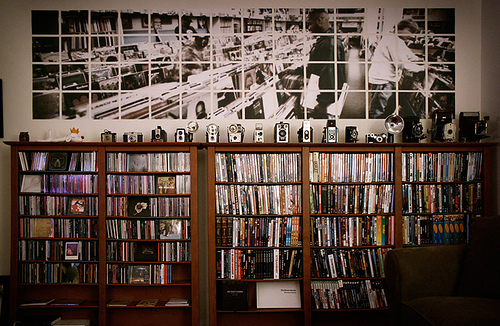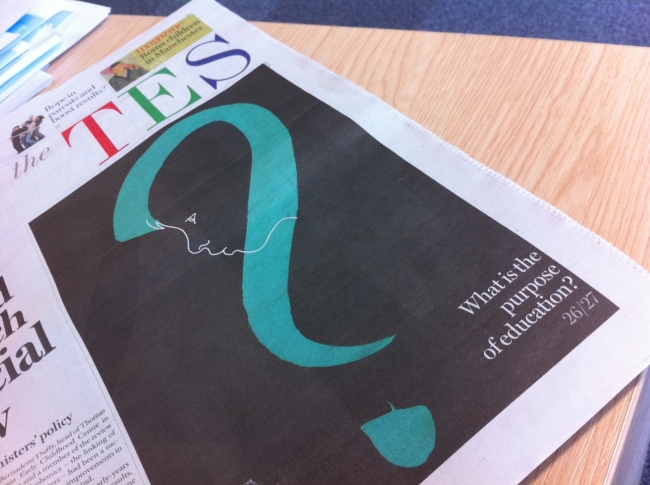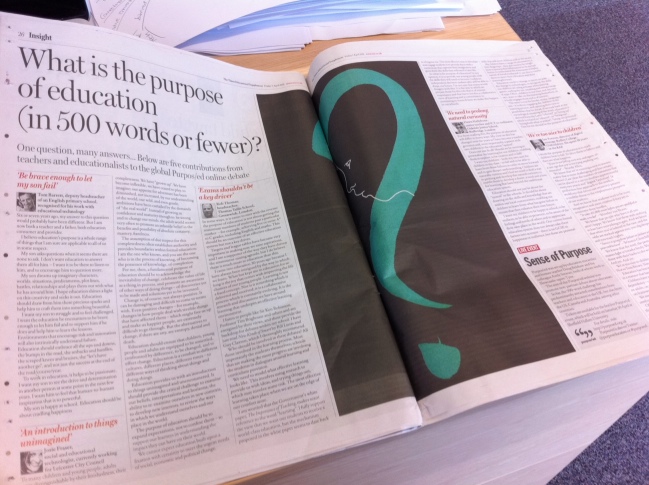
Image by dearsomeone @ Flickr
I read Dave Eggers’ book They Shall Know Our Velocity a few months back. In it, one of the main characters talks about the ‘slow suffocation of accumulation’ and seeks to give away a large amount of money. I’ve been feeling that suffocation recently, as I explained in the introduction to this week’s focus on ‘divesting’.
Way back in the sands of time (OK, less than 10 years ago) I was an undergraduate student in Sheffield I and I used to work part-time for HMV. I didn’t actually take home that much money as most of it was invested in DVDs and CDs. I even got 40% off the Sale stuff! I say ‘invested’ as I funded a large chunk of my living expenses whilst I was doing my MA at Durham University by selling part of my collection. Although not to the same extent, I did similar working at various bookshops both before and after university.
And therein lies the rub. I’ve been lulled into a belief that one should own a physical collection of DVDs, CDs and books. As though having a personal library somehow defines you, makes you look more intellectual, or even constitutes some kind of artistic statement. I’ve realised that’s not the case.
As I commented in my introduction to this series [link] I’ve been prompted recently into reflecting on my relationship to ‘stuff’. I’ve realised that, having moved house twice within 18 months, I’ve spent a great deal of time and physical labour moving things I will not watch, listen to or read for a very long time. Yet I’m responsible for it. I’d be upset if it were stolen or I lost it for some reason. Why?
So I’ve decided that it’s going. “What, all of it?” I hear you ask. As far as I see it, there are two approaches I could take:
- The over-the-top, ‘throw the baby out with the bathwater’ approach.
- The Pragmatic approach.
Pragmatism is a philosophical approach and method that I’m applying in my Ed.D. thesis. To summarise very briefly and in relation to what I’m talking about here, it holds that for something to make a difference, it has to make a difference in practice. For example, a book may have had a profound impact on my way of conceiving the world and my development as a person. That doesn’t mean it has to sit on my shelf. I may really, really, love a particular album. That doesn’t mean I have to own the physical CD as opposed to a digital version. The same goes for DVDs.
But I need to be careful or I could end up trading one problem for another. In divesting myself of physical clutter I could gain, as it were, ‘digital clutter.’ This is something I shall be discussing and wrestling with later in the week.
What’s my plan, then, to deal with physical media? It’s a fairly straightforward 4-step process:
- Anything I can, and feel should, replace with a non-physical version (e.g. CDs, DVDs) I shall do.
- Any book I haven’t yet read or DVD I haven’t watched stays until I have done so.
- Those physical objects that are collectors items, worth more than a nominal value and fit into one box I shall keep as they are likely to gain in value. I can then sell these when Ben is older to add to his trust fund.
- Everything else goes to Barter Books, is listed on Amazon Marketplace, sent to Music Magpie or donated to charity.
What are your thoughts on this? A good idea or not? :-p




![Reblog this post [with Zemanta]](http://img.zemanta.com/reblog_e.png?x-id=aac2d83e-5550-484f-92e8-52b1da4ea051)